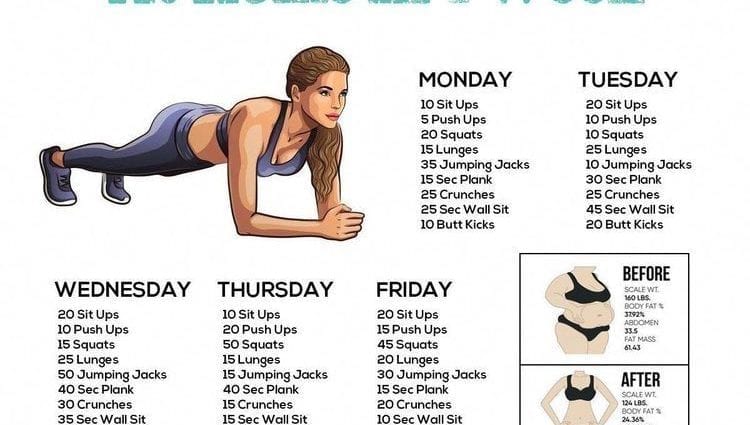Each age has its own characteristics of metabolism and the state of hormonal levels, so you should not eat the same way throughout your life. Moreover, to follow the same diet: it could be effective and useful for you at the age of 20, but at 50 it can lead to poor health. To prevent this from happening, adjust your diet based on age.
Diet by age: up to 12-13 years old
Often, parents are calm about the fact that their child has extra pounds, hoping that during puberty he will stretch out. This does happen often, but you should not wait without taking any action.
Contact your pediatrician or nutritionist, because the reasons for the child’s excess weight may be improper functioning of internal organs. If the specialist does not identify any health problems, most likely you are feeding him excessively high-calorie foods and he moves too little. In this case, at least limit the consumption of fast food by the child and add fresh fruits and dietary protein foods (lean beef, legumes, fish, dairy products) to the diet, as a maximum – make up a diet with a specialist taking into account the physical characteristics and lifestyle of the child.
Diet by age: under 20
The adolescent period today is dangerous for a passion for a variety of radical diets, nutritional experiments. Therefore, it is teenagers who are prone to anorexia nervosa, a disease in which a person is obsessed with the idea of losing weight and is ready for it not only on strict diets, but also on starvation. As a result of dietary experimentation, adolescents can develop chronic and progressive illnesses.
Add meat to the diet (it is extremely necessary for a growing body), dairy products (rich in calcium, they are useful for bone density and skeleton formation), foods containing vitamin C, which is important for improving immunity and the absorption of iron by the body (citrus fruits, currants, sweet and hot peppers, spinach).
At this age, you can sit on protein food systems (Ducan diet, Atkins diet).
Diet by age: 20 to 30 years old
It’s time to put your body in order: just a large part of the development processes in the body has already been completed, the hormonal background has stabilized, the metabolism is active. Nutritionists note that it is not difficult to lose those extra pounds at this age.
Try to eat right. At this age, it is important to enrich the diet with nuts (they are nutritious and needed to improve skin condition), whole grains with a low glycemic index (rice, millet, corn, buckwheat) and dairy products (they speed up metabolism).
It is better to practice fasting days 1-2 times a week, for example on apples or kefir. If you still want to go on a diet, then choose a medium-calorie diet (for example, a protein-vitamin diet, a cereal diet (not a mono diet!)). Add physical activity to improve the effect.
Diet by age: 30 to 40 years old
At this age, the metabolism slows down, which leads to difficult removal of toxins and toxins from the body and to problems with the work of the gastrointestinal tract.
Enrich your diet with vegetables and fruits that contain plant fiber and fiber that cleanse the body of toxins. Eat brightly colored foods – they are a source of antioxidants that not only cleanse the body, but also slow down aging. Avoid the usual high-calorie sweets and pastries in favor of honey and dried fruits.
Now, first of all, cleansing mono-diets (buckwheat and rice), vegetable fasting days are relevant for you. Also, once a week, you can arrange a raw food detox day: eat only raw vegetables and fruits, drink clean water. And be sure to move a lot, walk.
Diet by age: 40 to 50 years old
During these years, the human body produces less and less sex hormones, which leads to an increase in the number of fat cells. The female body removes fluid worse and digests simple carbohydrates with great difficulty. The metabolism slows down even more.
Women after 40 should better give up table salt, replacing it with small amounts of sea salt or soy sauce, from pasta and starchy vegetables (potatoes, corn, beets, etc.). Switch to fractional meals to speed up your metabolism. Add foods to your diet that help break down and absorb fat (pineapple and kiwi), green tea and soy (they supply the body with phytoestrogens necessary before and during menopause).
Choose a diet based on vegetables and fruits. Diets containing fish and seafood are also helpful. Avoid high-protein diets.
Diet by age: from 50 years old
The body weakens by this period (and in women it is aggravated by menopause). Metabolism continues to slow down, diseases are aggravated. Dramatic weight loss can lead to irreparable consequences, so now the diet, first of all, pursues the goal of improving and maintaining health. Moreover, even if there is no excess weight, the daily calorie intake should be significantly reduced, because you are no longer as active, you do not need as much energy as before (the recommended calorie intake is 1700 kcal per day).
Now you need to eat fractionally and in small portions (no more than 200-250 g of food per meal). Drink plenty of water as dehydration is common in adulthood. The diet should contain dairy products (calcium is needed to avoid fragility of bones), cereals (they are nutritious and necessary for the proper functioning of the body), a small amount of dry red wine is permissible (it helps to improve the functioning of the cardiovascular system).
Michel Montignac’s diet can be considered ideal: it encourages the use of “good carbohydrates” (not causing a significant increase in sugar levels). Never go on express diets.










